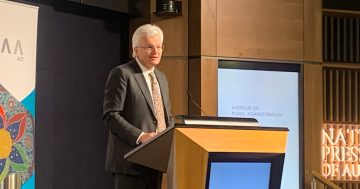KENYA
 Cabinet Secretary in the Parliament of Kenya, Professor Margaret Kobia (pictured) says recent studies have shown that the country’s Public Service has structural and capacity challenges that hinder its efficiency.
Cabinet Secretary in the Parliament of Kenya, Professor Margaret Kobia (pictured) says recent studies have shown that the country’s Public Service has structural and capacity challenges that hinder its efficiency.
Writing an opinion piece in The Nation newspaper, Professor Kobia, whose portfolio covers the Public Service, said inefficiencies resulted in poor services.
“Inefficiencies in service delivery also nurture unethical practices,” Professor Kobia said.
She said lethargic attitudes in human resources could lead to misappropriation of funds, fraud, theft, embezzlement and other vices taking root.
“A lacklustre and unmotivated workforce is unlikely to be diligent, exposing operations to transparency and accountability challenges,” Professor Kobia said.
She said one of the Government’s strategies to improve service delivery and reduce corruption was the use of e-government — ICT and internet-based digital interaction between the Public Service and citizens.
She gave the example of South Korea, which had integrated e-government into its service system and registered unprecedented gains in improved service delivery and elimination of corruption.
“In Kenya, e-government is taking root and is bound to spread,” Professor Kobia said.
“It has increased efficiency in the road transport sector through the Transport Integrated Management System, with licences applied for and renewed online.”
She said e-government, with citizens seeking services and making payments online, would effectively eliminate the “bribery tax” that such services attracted.
“While e-government may not be the panacea for all inefficiencies in the Public Service, the ongoing reforms will make it more efficient,” Professor Kobia said.
Nairobi, 17 September 2018











